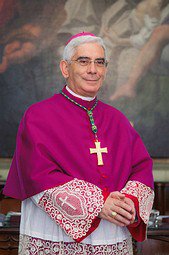
Stefano Bontade was a powerful member of the Sicilian Mafia. His actual surname was Bontate. He was the boss of the Santa Maria di Gesù Family in Palermo. He was also known as the Principe di Villagrazia − the area of Palermo he controlled − and Il Falco. He had links with several powerful politicians in Sicily, and with prime minister Giulio Andreotti. In 1981 he was killed by the rival faction within Cosa Nostra, the Corleonesi. His death sparked a brutal Mafia War that left several hundred mafiosi dead.
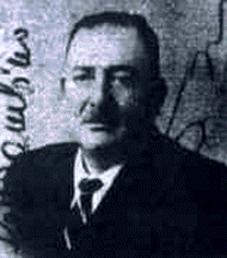
Michele Navarra was an Italian member of the Sicilian Mafia. He was a qualified physician and headed the Mafia family from the town of Corleone in Sicily. He was known as 'u patri nostru.

Filippo Marchese was a leading figure in the Sicilian Mafia and a hitman suspected of dozens of homicides. Marchese was one of the most feared killers working for mafia boss Vincenzo Chiaracane, closely related to the Giuseppe Greco family which was in control of the Ciaculli neighbourhood of Palermo.

Michele Greco was a member of the Sicilian Mafia and a convicted murderer. Greco died in prison while serving multiple life sentences. His nickname was Il Papa due to his ability to mediate between different Mafia families. Greco was the head of the Sicilian Mafia Commission.
The Sicilian Mafia Commission, known as Commissione or Cupola, is a body of leading Sicilian Mafia members who decide on important questions concerning the actions of, and settling disputes within the Sicilian Mafia or Cosa Nostra. It is composed of representatives of a mandamento who are called capo mandamento or rappresentante. The Commission is not a central government of the Mafia, but a representative mechanism for consultation of independent Mafia families who decide by consensus. Its primary role is to keep the use of violence among families within limits tolerable to the public and political authorities.
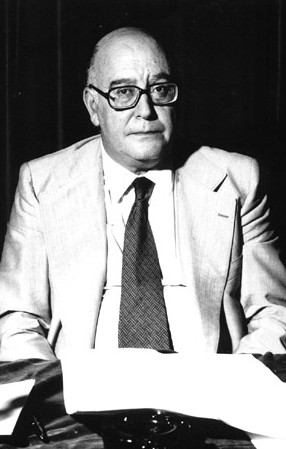
Cesare Terranova was an Italian judge and politician from Sicily notable for his anti-Mafia stance. From 1958 until 1971 Terranova was an examining magistrate at the Palermo prosecuting office. He was one of the first to seriously investigate the Mafia and the financial operations of Cosa Nostra. He was killed by the Mafia in 1979. Cesare Terranova was the predecessor of judge Rocco Chinnici who created the Antimafia Pool signing all indictments along with the magistrates Giovanni Falcone and Paolo Borsellino, who were also killed by the Mafia in 1992, and other Sicilian judges that, by signing together, presented a unified front to fight the Mafia by joining efforts that were a more difficult target for mafiosi and preserved institutional memory by sharing information.
The 1960s Sicilian Mafia trials took place at the end of that decade in response to a rise in organized crime violence around the late 1950s and early 1960s. There were three major trials, each featuring multiple defendants, that saw hundreds of alleged Mafiosi on trial for dozens of crimes. From the authority's point of view, they were a failure; very few defendants were convicted, although later trials as well as information from pentiti confirmed most of those acquitted were Mafiosi members, and were guilty of many crimes including some of those they were acquitted of.
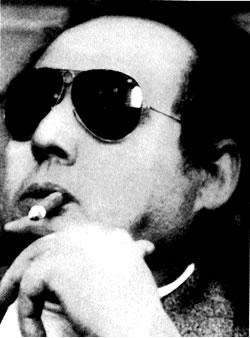
The Corleonesi Mafia clan was a faction within the Corleone family of the Sicilian Mafia, formed in the 1970s. Notable leaders included Luciano Leggio, Salvatore Riina, Bernardo Provenzano, and Leoluca Bagarella.

Giuseppe “Pippo” Calderone was an influential Sicilian mafioso from Catania, eventually becoming the capo of the Catania Mafia family.
The Second Mafia War was a period of conflict involving the Sicilian Mafia, mostly taking place from 1981 to 1984 and involved thousands of homicides. Sometimes referred to as The Great Mafia War or the Mattanza, it involved the entire Mafia and radically altered the power balance within the organization. In addition to the violence within the Mafia itself, there was violence against the state, including a campaign of deliberate assassinations of judges, prosecutors, detectives, politicians, activists and other ideological enemies. In turn, the war resulted in a major crackdown against the Mafia, helped by the pentiti, Mafiosi who collaborated with the authorities after losing so many friends and relatives to the fighting. In effect, the conflict helped end the secrecy of the Mafia.

The Greco Mafia family is historically one of the most influential Mafia clans in Sicily and Calabria, from the late 19th century. The extended family ruled both in Ciaculli and Croceverde Giardini, two south-eastern outskirts of Palermo in the citrus growing area and also rural areas of Calabria where they controlled the olive oil market. Members of the family were important figures in the Sicilian Cosa Nostra and Calabrian 'Ndrangheta. Salvatore "Ciaschiteddu" Greco was the first ‘secretary’ of the Sicilian Mafia Commission, while Michele Greco, also known as The Pope, was one of his successors.

Bartolomeo Bacilieri was an Italian Cardinal of the Roman Catholic Church. He served as Bishop of Verona from 1900 until his death, and was elevated to the cardinalate in 1901.
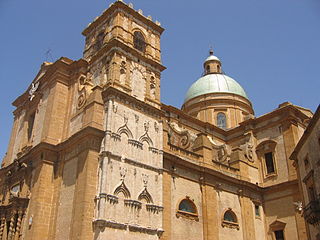
The Diocese of Piazza Armerina is a Latin Church diocese of the Catholic Church in Sicily. It is a suffragan of the archdiocese of Agrigento.
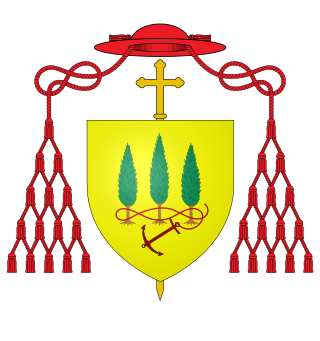
The Almo Collegio Capranica is the oldest Roman college, founded in 1457 by Cardinal Domenico Capranica (1400–1458) in his own palace for thirty young clerics, who received an education suitable to prepare them for the priesthood.
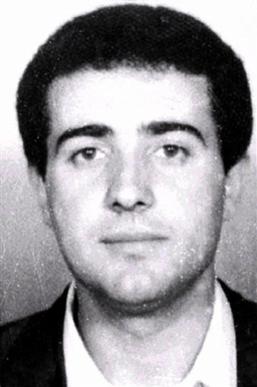
Daniele Emanuello was the head of the Sicilian Mafia in port city of Gela, Sicily. Emanuello had been a fugitive since 1996, and was subsequently added in the List of most wanted fugitives in Italy. Emanuello was under suspicion and wanted on charges of committing of crimes, including mafia association, drug trafficking and murder.

Salvatore Riina, called Totò, was an Italian mobster and chief of the Sicilian Mafia, known for a ruthless murder campaign that reached a peak in the early 1990s with the assassinations of Antimafia Commission prosecutors Giovanni Falcone and Paolo Borsellino, resulting in widespread public outcry and a major crackdown by the authorities. He was also known by the nicknames la belva and il capo dei capi.
Rosario Naimo is a member of the Sicilian Mafia, also known as Saro or Saruzzo. He was seen as an important go-between for the Sicilian and American Mafia, closely related with the Gambino crime family. He is a man of honour from the Tommaso Natale-Cardillo Mafia family that later became part of San Lorenzo family.

Giuseppe Greco was a hitman and high-ranking member of the Sicilian Mafia. A number of sources refer to him exclusively as Pino Greco, although Giuseppe was his Christian name; Pino is a frequent abbreviation of the name Giuseppe.
The Sicilian bishops' conference is a group of Bishops of the Roman Catholic Church in Sicily. These are the bishops of the 17 dioceses of the Church belong to the 5 provinces of the Church of Sicily, and the Eparch Piana degli Albanesi. The Sicilian bishops' conference is a part of the Italian Episcopal Conference. Some bishops who are in the Sicilian bishops 'conference delegates certain responsibilities belong to the Italian Bishops' Conference of the respective commissions.
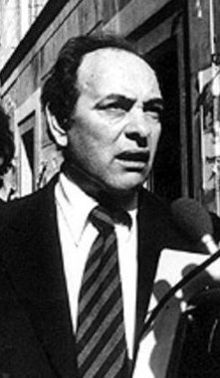
Mario Francese was an Italian crime reporter of the Giornale di Sicilia. He was the first journalist to expose the role of Toto Riina and the Corleonesi within the Sicilian Mafia, and because of this he was killed on 26 January 1979. After 22 years, in 2001, those who had decided to eliminate him were convicted.
